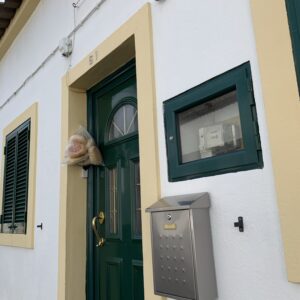By TEOLINDA GERSÃO
Translated by MARGARET JULL COSTA
The reason I first donated sperm wasn’t to fill the world with my children, but to get money to buy a new skateboard and go to the movies more often. I didn’t think it would change me.
By TEOLINDA GERSÃO
Translated by MARGARET JULL COSTA
The reason I first donated sperm wasn’t to fill the world with my children, but to get money to buy a new skateboard and go to the movies more often. I didn’t think it would change me.
By JOÃO LUÍS BARRETO GUIMARÃES
Translated by CALVIN OLSEN
to Alexandra and Ricardo
on the arrival of Gui
We all have credit,
Said the bankers.
A matter of faith.
—Hans Magnus Enzensberger
By RUI CARDOSO MARTINS
Translated by DEAN THOMAS ELLIS
There are two twin girls in the courtroom. They look very much alike, with fine blonde hair, tightly bound, and short, pretty noses. One can see they have not yet reached the point in life where twins become separate. If they were to trade places, it would not be easy to tell the difference. But do not look at them in this way. A year and a half ago, a curtain fell between them.
By JENNIFER JEAN, NANCY VIEIRA COUTO, and CAROLYN SILVEIRA

As part of this fall’s Lusosphere portfolio, The Common will publish accompanying work online. This month’s poetry feature highlights the work of three Lusa-American poets, tracing their roots back to the Azores and Cape Verde: Jennifer Jean, Nancy Vieira Couto, and Carolyn Silveira.


Lomba Das Barracas, Furnas, São Miguel Island, Azores, Portugal
This morning, from our bed, Luke and I listened again for the ice-cream truck melody of the Portuguese bread truck. Not that we needed bread, because we’d bought a week’s worth the day before at our tiny grocery store that is also a bar and is also a café, but because it came through yesterday and we wanted to see the operation in action—did people run out after the truck, and buy loaves off the back? Or was it a pre-pay or on-tab on-order delivery? Apparently, in the tiny Azorean village of Furnas, the fresh food comes to you. Just last night, a fruit truck rumbled through the neighborhood, broadcasting a tuneless tune from its loudspeaker to alert neighbors of the fresh produce for sale—heads of cauliflower, potatoes, peaches, leeks, and tomatoes—right off the truck. The bread truck, we reasoned, might do the same.

In fall 2020, The Common, in partnership with the DISQUIET International Literary Program in Lisbon, will publish a portfolio from the Lusosphere: Portugal and its colonial and linguistic diaspora. We hope to include writers from and works about the many countries and communities that make up this diverse diaspora. Writers need not speak Portuguese or live in a Portuguese-speaking country to submit.
Three poems by ALBERTO de LACERDA, Transnational Spirit
Translations and introduction by SCOTT LAUGHLIN
“This is what I live for: friendship and the things of the spirit.” Alberto de Lacerda often repeated this refrain to his friends. Friendship meant kinship, connection, and community. The things of the spirit were poetry, literature, art, dance—the myriad expressions of the spiritual and transcendent Alberto sought, and lived by, his whole life.
Such values perhaps couldn’t lead to anything but an intercontinental life.
 When the drugs came, they hit all at once. It was the eighties, one in ten residents slipped into the deep of heroin addiction—bankers, university students, carpenters, socialites, miners—and Portugal fell into a panic.
When the drugs came, they hit all at once. It was the eighties, one in ten residents slipped into the deep of heroin addiction—bankers, university students, carpenters, socialites, miners—and Portugal fell into a panic.